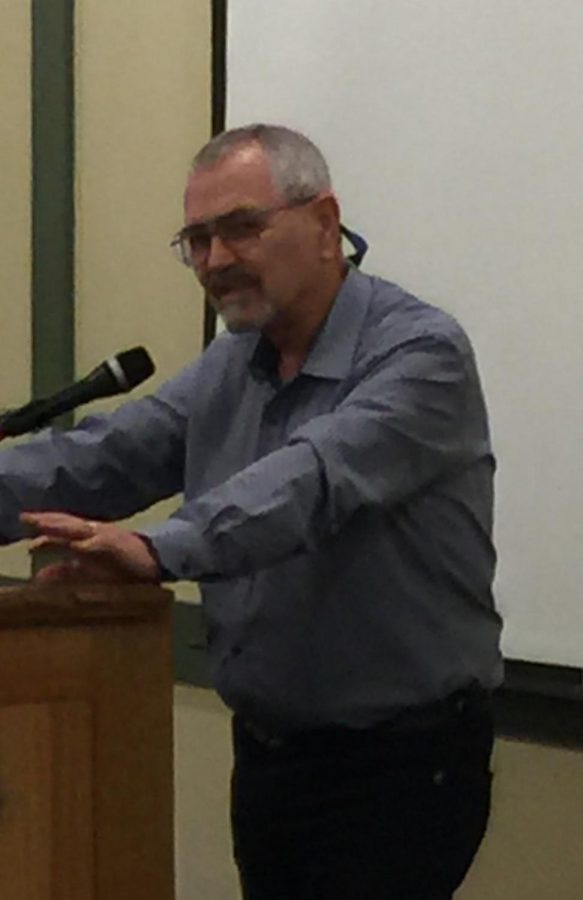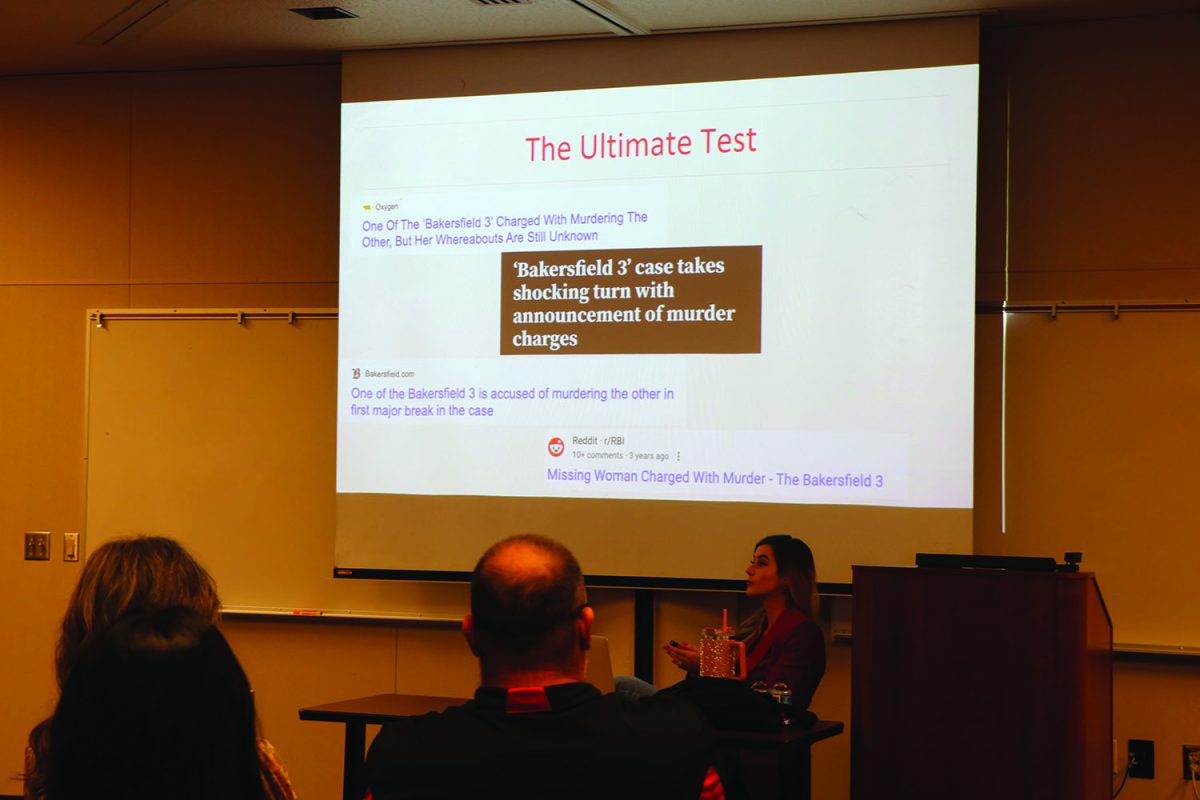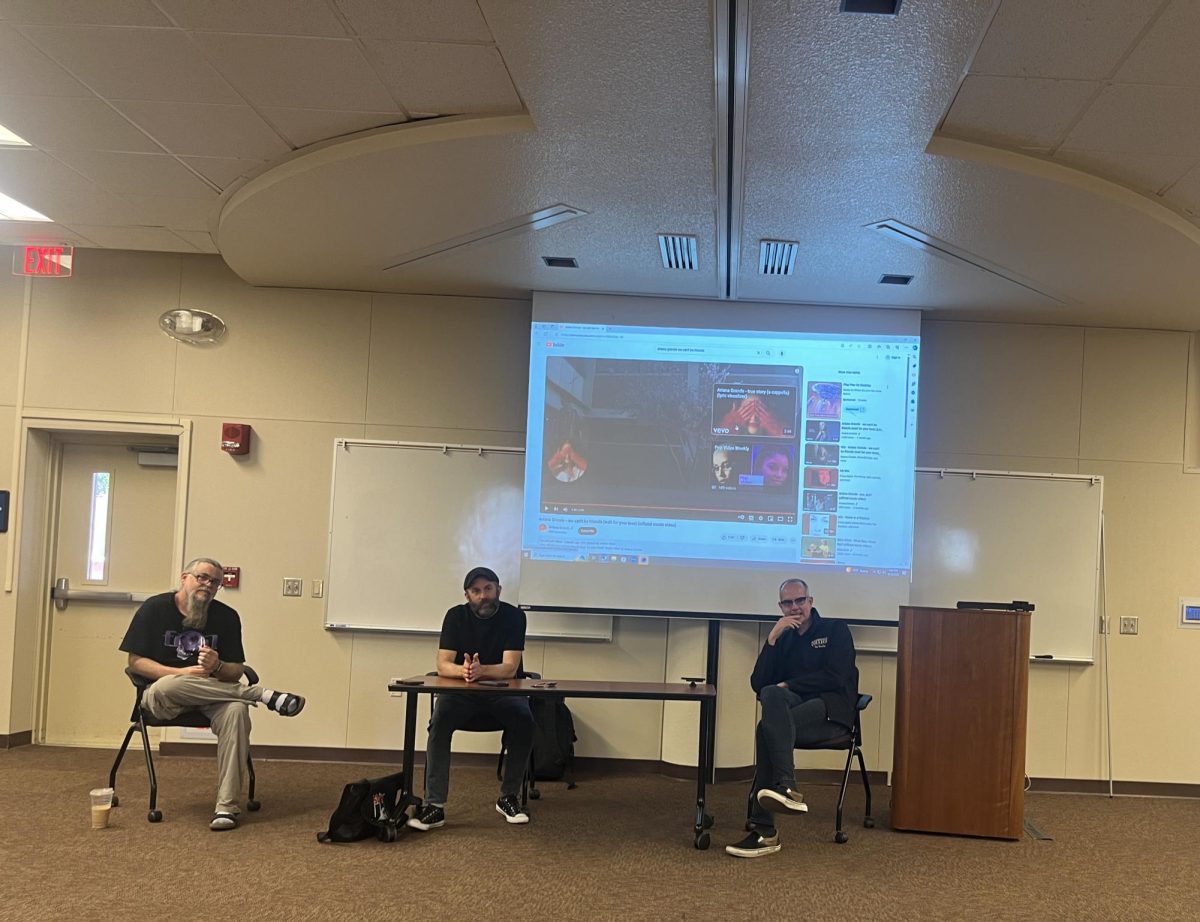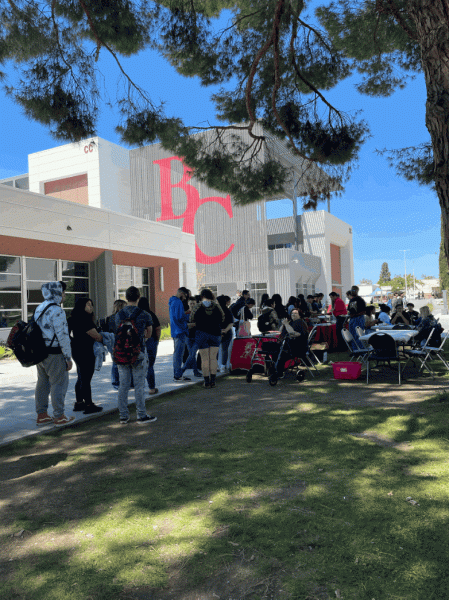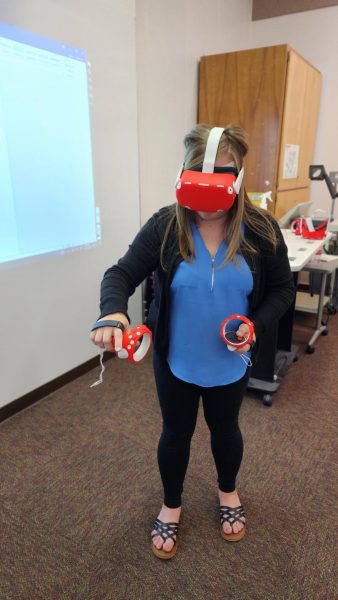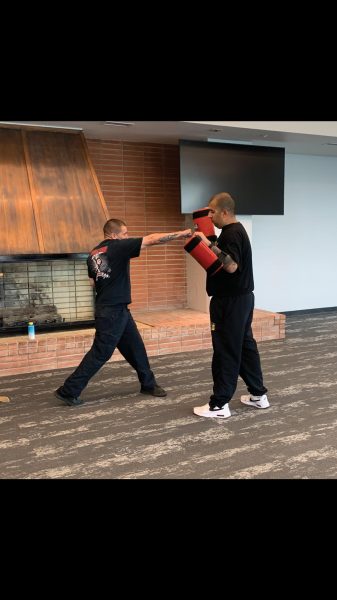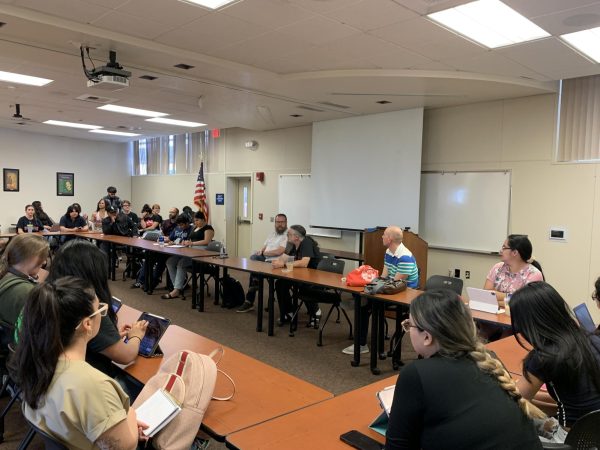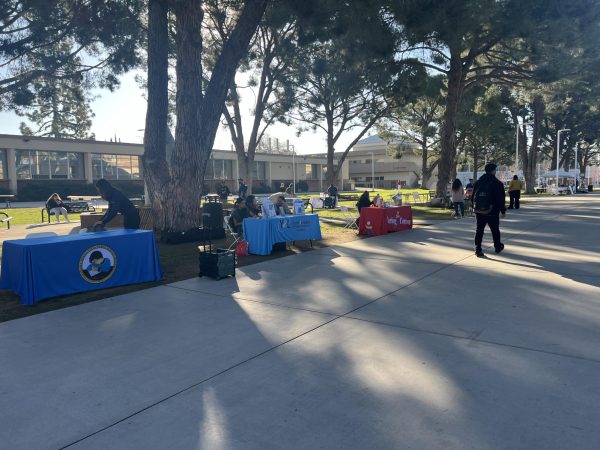Local author shares advice at writer’s workshop
February 25, 2018
The Writers of Kern (WOK), a local non-profit, which focuses on providing a support channel for writers to sharpen their writing craft, share their work, and network with other authors by attending monthly meetings, workshops and conferences, hosted member and guest speaker L.J. Martin, an accomplished writer and founder of Wolfpack Publishing. The workshop was held at Hodel’s on Feb. 17. The subject of the workshop was Writing and Publishing Tips.
Martin, who was born in Bakersfield, graduated from Bakersfield High School and is a Bakersfield College alumnus who has authored western, historical, mystery and thriller novels, as well as nonfiction and screenplays. Martin shared advice from handling rejection letters, to how to host a successful book signing event, and how authors can sell themselves and their work by thinking outside of the box.
On rejection letters, Martin said, “If you don’t get enough rejections you’re not writing enough.”
To Martin “Rejections are a funny thing … you think they [publishers] just don’t like what you have to say, and that’s very seldom the case.”
He said most rejections have to do with inhouse publishing limitations. Things like a tight budget, “not having a slot” for an author’s book, because the slots are filled through the year.
Yet, it’s not the only helpful insight into the publishers’ world. When it comes to getting a rejection notice and authors should take notice. When Martin sold his first book he received a rejection letter which read, “This book has no redeeming qualities.”
Yet Martin, who admitted to sending his book to every publisher he could, said, that the very next day, he received another letter from a different publisher for the same book and it read, “This guy is the next Louis L’Amour.” (L’Amour was a famous Western novelist with 89 novels to his credit, known as one of the bestselling authors of short stories, and whose stories caught Hollywood movie producers’ attention.)
Different publishers responded to his work with two opposite opinions. Martin’s point was that one publisher may overlook the potential of an author’s work, while another publisher recognizes it, and so it goes, that the weight of the critique should always be balanced by submitting work to several publishers, and not to rest on one critic’s assessment alone, as far as the value or potential of a writer’s work.
Martin also shared some alternative tips on how authors can market their work. He employs both old-fashioned pavement work, coupled with technology, as well as reaching out to others who have expertise in a field that could gain him more exposure. He illustrated these points with some examples.
As an author he wanted to get his books into as many hands as he could, so he decided to approach Aafes [Army Airforce Exchange Service] with the proposition to do a book signing on a military installation. This bold move sold 500 books in one weekend.
The other example he shared was to enlist the help of an SEO [Search Engine Optimization] expert. Martin said that he offered this expert half of a percent of the sales he would make on his books in exchange for SEO exposure. After just two months, Martin made 40 times the amount of sales in comparison to his exposure before SEO.
As far as the craft of writing Martin has some advice. He said, “The best advice to get started is just to write every day. You know if you write two pages a day in six months you got a book, that’s two lousy pages a day. That’s 500 words.”
As far as submitting an author’s book to a publisher, Martin said, “You damn well better be halfway into your second book when you submit your first one because they [publishers] don’t want a ‘one shot deal.’ They don’t make any money on one-shot deals … They want that first book to do alright hoping that you will build an audience on your second book.”
He said that the agent “better be convinced they can sell that book.”
Martin admitted that he wasn’t very patient when it came to waiting to hear back from publishers. So, against the advice common during the early years of his writing career, he submitted his work to everybody. This brought him to his advice on query letters. He said, “Writing a brilliant query letter” is an absolute. It’s what gets one’s foot in the door.
On advice about author’s getting their work edited, send out “lots of free books.”
He said that it’s what he did and he didn’t copyright any of his work, because he wasn’t afraid of his work being stolen.
“I love people when they stole my work, they can steal every book I have … as long as they didn’t take my name off of it. You have a market of 7 billion people … you just can’t imagine touching them all. If your book gets out there and you get some word of mouth off of some of it and somebody steals it, let ‘em steal it. Anybody that gets your work out there is a good thing.”
For authors who are timid in approaching people about their book, Martin’s advice was to get a book into someone’s hands and then follow that with, “…may I sign that for you?”
Martin wasn’t short on helpful guidance. He said that a writer needs to finish the chapter with a great ending that pulls the reader to the next chapter, otherwise a reader will have the impulse to put the book down and that’s not what an author wants when someone is reading their book.
Martin also said that he likes to check his work for repetitive words, words like “that” which he considers “the most overused, unnecessary word in the English language.”
Janet Skibinski, the secretary for WOK said that this was a surprising tip for her but very helpful.
Brent Gill, a member of WOK and also an author himself found the workshop very useful. He said that he is working on a novel at the moment. One question he posed during the workshop was how an author who may lack salesmanship can find ways that suit them better in order sell a book during a book signing event. Gill said many writers find the thought of having to sell their own books “terribly, terribly difficult, it’s not in their nature and if we are going to create a saleable item, we’re going to have to sell it … We’re going to have to learn to use the methods that he [Martin] spoke of.”
Joan Raymond, President of WOK said she “really appreciated Larry’s honest advice about how we as authors, must be willing to be creative in marketing our work. I think it’s good advice to break a novel into sizeable bites. Anything to get across that writing doesn’t have to be a grueling experience, one just needs to commit ‘either time in chair or pages on a regular basis,’” as Martin pointed out in his workshop.
WOKs next event is Writers of Kern Annual Spring Conference, hosted on March 17, at Hodels. The all-day event which will feature screenwriter Dave Congalton, publisher Ernie Zarra, revisionist Rebecca Langston-George and poet Brendan Constantine.


